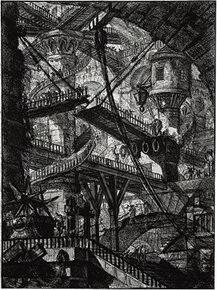Archived news
02 February 2015: Criminologist awarded £159,586 to examine punishment

Professor Eamonn Carrabine has been awarded a three-year Leverhulme Major Research Fellowship worth £159,586. The project, The Iconography of Punishment: From Renaissance to Modernity, examines the ways in which punishment has been represented in the visual arts from the 1500s up to the present day, in an effort to track continuity and change across different times and experiences.
Images of punishment have featured prominently in Western art – from Laocoon’s tortured scream, through to Piranesi’s carceral fantasies. They pose important questions over the meanings of pain, suffering and justice depicted in such a rich variety of cultural material. While they should not be read as unproblematic sources of historical evidence, they do speak to the tensions animating an era, condensing significant disputes over the meaning of punishment from which we have much yet to learn.
The importance of analysing such cultural representations is that they enlarge our imagination, so that we can better understand each other and the kind of world we live in. Stories of crime and punishment are central to every society as they address the universal problem of human identity. Every culture generates founding myths to account for society’s origins, typically situated in some dreadful primordial event.
The imaginary origins of Western civilization are to be found in tales of banishment, confinement, exile, torture and suffering. The theme of exclusion is symbolically rich and spaces of confinement – both real and imagined – have provided stark reminders of human cruelty and reveal just how thin the veneer of civilization can be.
Talking about the Fellowship, Professor Carrabine said: “I am delighted to have been awarded a Leverhulme Major Research Fellowship to carry out the research and my hope is that I can now do justice to the topic!”.